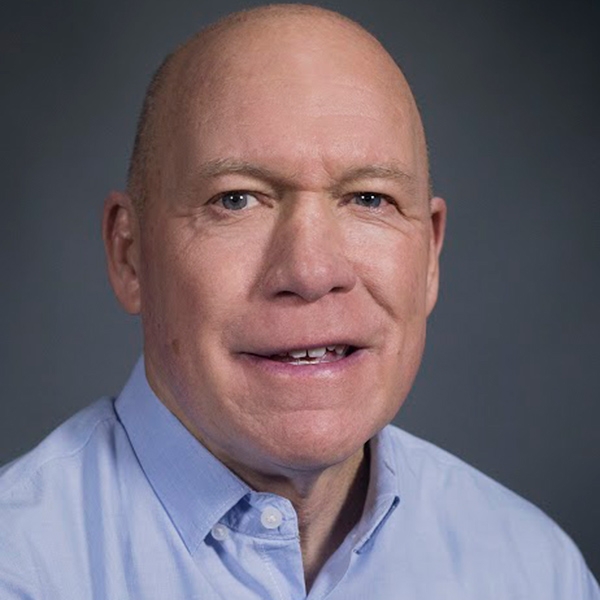
‘Keep calm!’ The economy stays steady despite inflation and the impacts of remote work
Since the onset of the Great Depression in 1929, there have been dozens of adverse events that have threatened to cripple the U.S. economy, including wars, recessions and government shutdowns. And to be sure, the economy has taken some big hits, especially during the pandemic. But overall, it trends in a positive direction.
“Our economy is tough,” said Peter Rupert, a professor of economics at UC Santa Barbara and director of the university’s Economic Forecast Project (EFP). “That’s why I say, ‘Keep calm!’”
Rupert was speaking to a crowd of several hundred gathered in downtown Santa Barbara for the EFP’s annual South County Economic Summit, where early chatter in the lobby of the Granada Theatre centered around inflation. This year, the summit brought in Christopher Waller, who sits on the Federal Reserve Board of Governors, to offer the Federal Reserve’s broader perspective on the economy, particularly inflation.
Waller emphasized that the unemployment rate — now at 3.4% — is the lowest it’s been since 1969. Gross domestic product (GDP), retail sales and hourly earnings continue trending upward. Our banking system overall, he said, is “sound and resilient.” But he also acknowledged that he was “concerned about the lack of progress on inflation,” with food prices and rents, among other indicators, still relatively high.
Currently, inflation is running around 5%, the highest it’s been since the late ’70s and early ’80s. Waller said the Federal Reserve’s target is to stabilize inflation at 2%.
“The tool the Fed (Federal Reserve) uses is the federal funds rate, an overnight rate that banks charge to one another for loans,” explained Rupert, who’s been with UCSB’s Department of Economics since 2007. “Higher rates lead to fewer loans and, in their view, slows the economy.”
Waller concluded by saying that the Federal Reserve will review updated numbers concerning the labor market and consumer pricing, expected to arrive in the coming weeks, before deciding on a potential interest rate hike this summer.
Case Study: City by the Bay
As the national economy as a whole rebounds from the pandemic to realign with overall upward trends, not all is well in the Golden State. In particular, San Francisco can provide a cautionary tale.
“We’re not heading toward a Detroit situation,” said Ted Egan, the chief economist for the city and county of San Francisco for the past 16 years. “But the next five to 10 years are going to be rough.”
Over the past two years, San Francisco has lost upward of 8% of its population, the biggest drop in any city nationwide. Former residents have left town. Many tourists are staying away. And with the massive increase in remote work, especially in the technology sector, downtown office buildings remain all but empty.
“The pandemic showed that you don’t need occupied offices,” Egan said, adding that the office industry — which encompasses transportation, food services, retail and development, among other factors that fuel a city’s economy — generated 80% of San Francisco’s GDP. Fortunately, he added, there is no sign that tech workers are leaving the region, “they’re just working from home.”
Among other issues, the city must weigh the prospect of raising taxes to compensate for the drop in business-tax income as employees work remotely, and how to tackle the perception that city streets are overwhelmed by poverty and homelessness.
“San Francisco does not seem to be an outlier,” Rupert said. “It just happened a lot faster due to the predominance of the tech sector and remote work. LA is now seeing problems in the office market.”
It’s too soon to tell how widespread remote working might impact the economy, Rupert noted. “But it is extremely likely that working arrangements will look different than the pre-pandemic allocation."

Peter Rupert is a professor of economics and former chair of the Department of Economics, and associate director of the UCSB Laboratory for Aggregate Economics and Finance, founded by Nobel laureate Finn Kydland. Rupert's areas of specialization include macroeconomics, monetary economics, economics of the criminal justice system, labor and household economics.
Keith Hamm
Social Sciences, Humanities & Fine Arts Writer
keithhamm@ucsb.edu



